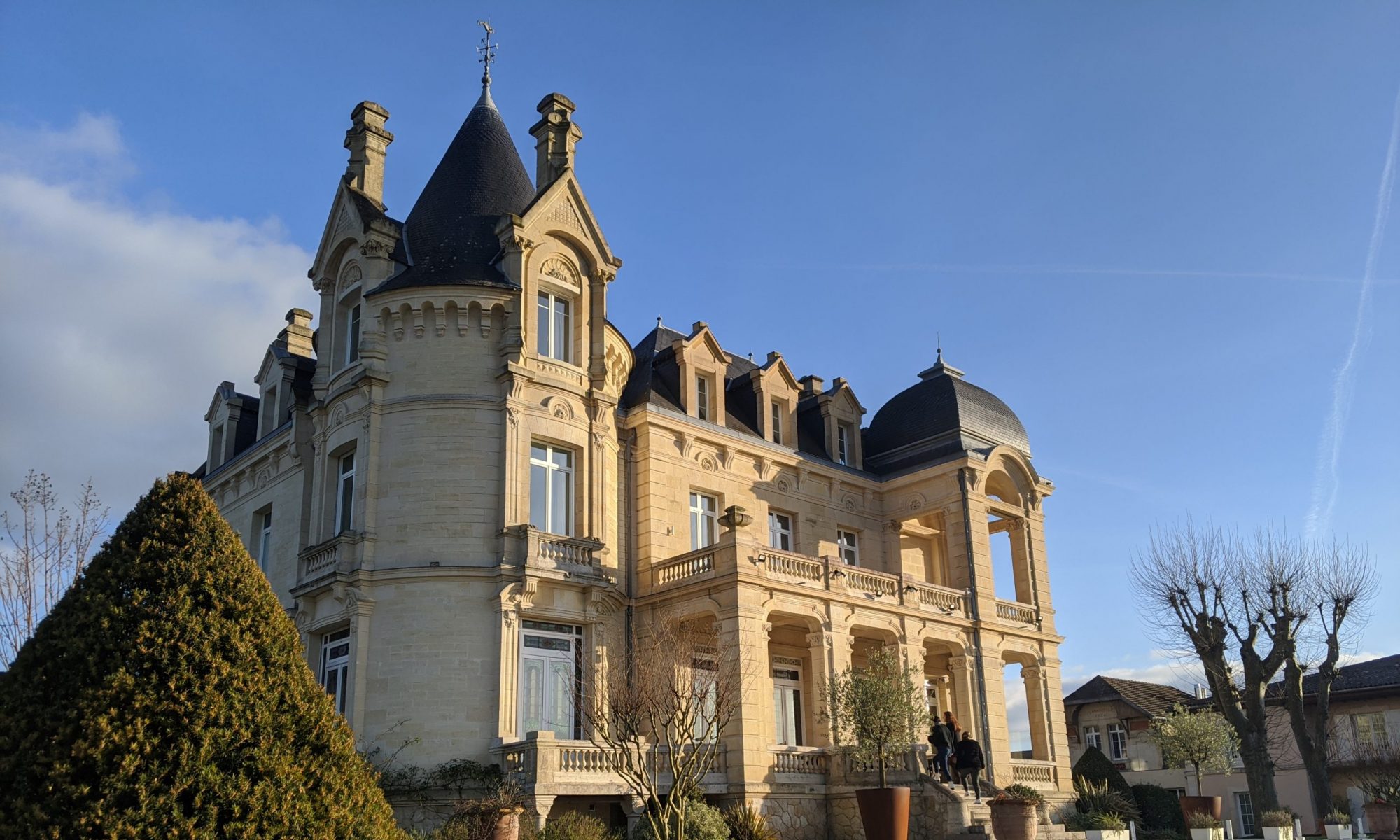
On my last day of lessons with Virignie we focused on connecting words, les mots de liaison. We studied two texts: an excerpt from the book «Sauvons les garcons» by Jean-Louis Auduc, and an imagined product launch presentation for a fictional sports car. These gave us a chance to see in action expressions that sequence an argument (like d’abord, ensuite, enfin); that juxtapose ideas while asserting a particular relationship between them (d’une part/d’autre part, tant … que); or that qualify or amplify a statement (hormis, mis à part, notamment, à savoir). Finally, we identified some expressions that are rampant in oral argument but sound too familiar when written down (de coup, bref). Good stuff all, well worth my future study.

Separate from this grammar session, we did the usual editing of my latest written output (the promised book review of La Disparition de Stephanie Mailer by Joël Dicker). I wrote the original version in an hour and a half or so, though I had little more than two paragraphs to show for it. Still, this was plenty to drive a good editing / re-writing session. My favorite bit from this was Virginie’s observation that «… des portraits à peine esquissés, vite oubliés.» felt too sudden, too brusque. The simple insertion of a single word suffices to repair this: «… des portraits à peine esquissés et vite oubliés.». “That way the two phrases each have five syllables,” she says (in French). “It swings better: «à peine esquissés (gestures left) et vite oubliés (gestures right)»”. Good writer, that Virginie.
Here’s the full text, before and after.
Version originale
Le quatrième roman de Joël Dicker, lauréat du Grand Prix du Roman de l’Académie française, a paru en 2018, six ans après son chef d’oeuvre La Verité sur l’Affair Harry Quebert. Comme celui-ci, La Disparition de Stephanie Mailer (Éditions de Fallois) est un roman policier situé aux États-Unis. Comme en Harry Quebert, l’intrigue est compliqué, voire rococo. Encore une fois une femme qui a disparu et le meurtre multiple commis il y a longtemps. Et comme d’habitude, Dicker nous raconte son histoire dans une manière hachée, sautant parmis les années 1990s, 2000s, et 2010s presque aléatoire. Mes ces ingrédients familiers, qu’il a mélangés avec légèrté dans Harry Quebert, sont badigeonnés en couches épaises avec une main lourde et étourdie. Le resultat est un échec littéraire même s’il était une réussite commerciale.
Le roman n’a pas un personnage principal mais plutôt une distribution d’ensemble. Mais c’est un véritable ménagerié (défilé? tribu?) avec plus de trente personnages récurrents, dont une liste apparait à la fin de l’ouvrage. (Peut-être si j’avais su dès que j’ai entamé ce pavé de 800 pages que ce recensement éxistait, je aurais mieux suivi tous les virages en épingle.) Au-delà de la quantité de personnages, leurs caractérisations sont fade. Il nous donne des gens à peine esquisés, dont mes souvenirs flanchent déja.
Pire que son aménagement des personnage c’est rhytme avec lequel il raconte les évenements. …
Version corrigée
Le quatrième roman de Joël Dicker, lauréat du Grand Prix du Roman de l’Académie française, a été publié en 2018, six ans après la parution de son chef-d’œuvre La Vérité sur l’Affaire Harry Quebert. Comme celui-ci, La Disparition de Stephanie Mailer (Éditions de Fallois) est un roman policier situé aux États-Unis. Comme pour Harry Quebert, l’intrigue est compliquée, voire baroque. Encore une fois une femme disparue et un multiple meurtre commis il y a longtemps. Et comme d’habitude, Dicker nous raconte son histoire d’une manière hachée, en sautant des années 1990, aux années 2000 et 2010 presque aléatoirement. Mais ces ingrédients familiers, qu’il a mélangés avec légèreté dans Harry Quebert, sont badigeonnés en couches épaisses d’une main lourde et étourdie. Le résultat est un échec littéraire même s’il a été une réussite commerciale.
Le roman n’a pas un seul personnage principal mais plutôt une distribution d’ensemble. Mais c’est un véritable défilé avec plus de trente personnages récurrents, dont une liste apparaît à la fin de l’ouvrage. (Peut-être si je n’avais pas appris l’existence de ce recensement qu’après avoir terminé ce pavé de 800 pages, j’aurais mieux suivi tous les virages en épingle.) Au-delà de la quantité de personnages, leur caractérisation est fade. L’auteur nous présente des portraits à peine esquissés et vite oubliés.
Pire que la construction de ses personnages, c’est le rythme avec lequel il raconte les événements qui/que …
As I mentioned, I didn’t get around to writing about the themes or the plot. But I did get the opportunity to learn from Virginie a very important word in the world of reviewing: «divulgâcher». The word means “to spoil”, as in “to reveal spoilers”. It comes from combining divulguer (to reveal) with gâcher (to ruin). «Divulgâcher» officially entered the language (with the caveat “Québecois”) in 2020, when it was one of 150 words newly added to the prestigious dictionnaire LaRousse. I haven’t been able to verify if it has a noun form, though, so I guess “No spoilers!” must be «Ne divulgâche pas!»

























